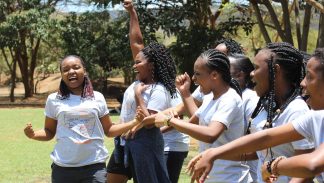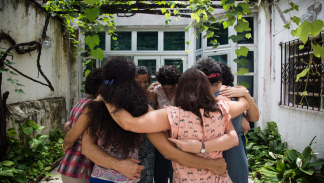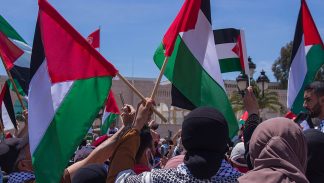Noha's Story
Noha* is a 40-year-old Syrian refugee from a village outside Hama. She and her family have been living in the Shatila camp in southern Beirut for three years, after escaping Syria when the war reached their village in 2012.
Noha’s life is not what she could’ve expected four years ago. “Even though we were in poverty, we were happy. I never thought I’d be a refugee,” she says.
In Syria, Noha and her family lived in a village just outside of Hama, and they had a small shop. Their neighborhood there was safe for their children—in their home and in the surrounding area. But life changed in 2012, when the bombing reached outside of their village. Soon after, their village was besieged by regime forces and it became difficult to have their basic needs met.
Noha explains verbal abuse from the military as well as sexual harassment from military personnel, saying that “they touched the privacy of our bodies.”
Now, Noha and her family live in Shatila camp in southern Beirut, where they have been for two and a half years—after six months of waiting to be allowed to leave Syria and cross the border into Lebanon.
Noha explains that access to healthcare, safety, and basic needs on top of the dire economic situation are her and her family’s biggest challenges.
She has eight children. But when she was pregnant with her eighth child, Noha tried to have an abortion. Abortion is legal for the first three weeks of pregnancy in Lebanon and in Syria, but it is conditional on the husband’s signature.
Because she could not afford to see a doctor, Noha bought expensive medication but it did not work. Now, she’s taking contraceptives, which became accessible for her when she discovered Global Fund for Women’s grantee partner, Tadamon. Tadamon [Arabic for “solidarity”] has been working to meet the unique needs of women and children refugees in Lebanon for years.
Noha explains that it’s too expensive to go to a doctor within or outside of Shatila, as Syrians cannot get public healthcare coverage. It costs them $75 per visit—before the cost of any direct services. With seven children to care for (Noha’s eldest son remained in Syria for fear of being captured to do enforced military service if he tries to leave), Noha now has to care as well for her husband, who had a stroke.
Noha opened a small shop for flooring in Shatila to make money, with the help of Tadamon. In the camp, Noha is concerned when her children go outside due to harassment and the electric wires.
She still reminisces on life in Syria. “In the village, we had a clean environment, clean bread; we planted our food and knew it was healthy. Our children were at home, not in the streets. Here, if they are late, we are worried,” says Noha. “I feel unsafe in the camp.”
*Noha’s name has been changed.
Learn more about the work of Tadamon and Global Fund for Women’s other grantee partners in Lebanon working to meet the acute needs of refugee women and children and empower them with economic opportunities, legal aid, and knowledge about their rights.
Story as told to photographer Alissa Everett, edited for clarity.
Help women refugees like Noha
With your help, Global Fund for Women can provide critical support to women’s groups in Lebanon, Iraq, and Jordan working directly with women and children refugees to create safe spaces, meet unique needs like healthcare, and teach women their rights so they can drive lasting change.


